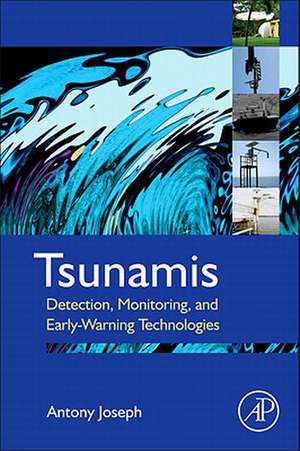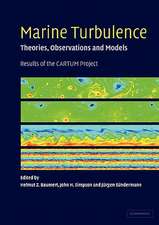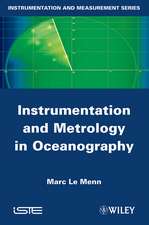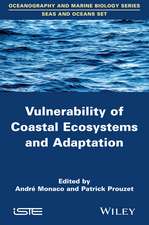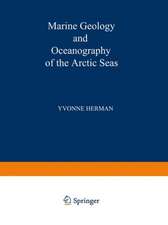Tsunamis: Detection, Monitoring, and Early-Warning Technologies
Autor Antony Josephen Limba Engleză Hardback – 14 mar 2011
- Offers readers the only source of practical content on the technological details of the subject
- Written by a tsunami detection and monitoring expert who has 32 years of experience in the field
- Companion web site featuring multi-media components, timely updates on fast-paced technological developments, and an online forum where scientists can exchange ideas, discuss technological updates and provide the author with valuable feedback
Preț: 561.25 lei
Preț vechi: 907.88 lei
-38% Nou
Puncte Express: 842
Preț estimativ în valută:
107.41€ • 116.63$ • 90.22£
107.41€ • 116.63$ • 90.22£
Carte tipărită la comandă
Livrare economică 15-29 aprilie
Preluare comenzi: 021 569.72.76
Specificații
ISBN-13: 9780123850539
ISBN-10: 0123850533
Pagini: 448
Ilustrații: 208 illustrations
Dimensiuni: 152 x 229 x 28 mm
Greutate: 0.74 kg
Editura: Elsevier
ISBN-10: 0123850533
Pagini: 448
Ilustrații: 208 illustrations
Dimensiuni: 152 x 229 x 28 mm
Greutate: 0.74 kg
Editura: Elsevier
Public țintă
Oceanographers and Marine Engineers; some Researchers in Oceanography and Marine Engineering, Geologists, Government Officials, and Equipment ManufacturersCuprins
Chapter 1: IntroductionChapter 2: Tsunami Generation and Historical AspectsChapter 3: Tsunami DatabasesChapter 4: Geophysical Tsunami HydrodynamicsChapter 5: Impact of a Tsunami on Coastal and Island HabitatsChapter 6: The Protective Role of Coastal EcosystemsChapter 7: Earthquake Detection and Monitoring for Early Warnings of Seismogenic TsunamisChapter 8: Numerical Models for ForecastingChapter 9: The Role of IOC-UNESCO in Tsunami Early WarningsChapter 10: Earthquake Monitoring for Early Tsunami WarningsChapter 11: Open Ocean Tsunami DetectionChapter 12: Land-Based Measurements of Inundation to Confirm TsunamigenesisChapter 13: The Technology of End-to-End Communication: Sending the MessageChapter 14: IOC-UNESCO Tsunami Early Warning SystemsChapter 15: Technological Challenges In Detecting TsunamisChapter 16: Sea-Level Measurements From Coasts and IslandsChapter 17: Sea Level Measurements From Deep-Sea RegionsChapter 18: Telemetry of Sea-Level DataChapter 19: Evaluating and Assessing Tsunamis TechnologiesChapter 20: Extracting Tsunami Signals From Sea-Level RecordsChapter 21: ConclusionsReferencesBibliographyIndex
Recenzii
"The general topic of tsunamis, as well as some specific aspects of tsunamis, are subjects of several books that have appeared in recent years (e.g., Tsunamis, edited by E. Bernard and A. Robinson, CH, Jul'09, 46-6215). One relatively neglected aspect (in comprehensive book format, at least) is the technology of tsunami detection, monitoring, and real-time reporting. Joseph (National Institute of Oceanography, India) admirably addresses these vital subjects in this 21-chapter book containing copiously referenced (800-plus citations) and illustrated technical introductory and state-of-the-art material. The first nine chapters deal primarily with the science of tsunamis and the history and record of investigations. The second half of the book deals with early seismic warnings, end-to-end communications, methods of measuring sea level in shallow and deep sea regions, telemetry of data, analyzing tsunami signals, and assessing technologies for specific environmental situations. Early warning systems are described for the US, Japan, Russia, Chile, New Zealand, and other countries. The subject coverage is broad and globally relevant to coastal engineers, scientists, disaster managers, oceanographers, and all people living within the reach of tsunamis. Summing Up: Recommended. Upper-division undergraduates through professionals." --T. L. T. Grose, emeritus, Colorado School of Mines
